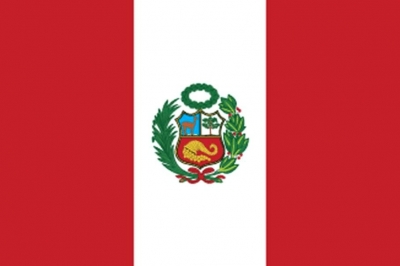 ( Click to Enlarge )
( Click to Enlarge )
Peru’s Minister of Foreign Trade has confirmed a new bill in the works. This legislation would provide a regulatory framework for online gambling. Additionally, the bill would outline standards for online operators to adhere to for safety and transparency.
Peru Drafts New Bill to Regulate Online Gambling Practices
Peruvian Minister of Foreign Trade and Tourism Roberto Sanchez has recently confirmed the existence of a new draft law. The bill in question seeks to provide a regulatory framework for Peru’s online gambling market.
Peruvian officials are in the midst of drafting new legislation that will see a robust, standardized regulatory framework put into place for online gambling operators.
The draft is currently being prepared by the Ministerio de Comercio Exterior y Turismo, or Mincetur. This legislation will seek the most efficient and beneficial methods for safely regulating online casino games and sports betting.
Currently, offshore online gambling in Peru generates approximately $1.2 billion in annual revenue. Additionally, at least 150,000 wagers are made by Peruvians every day. This is a huge potential revenue stream that the country is completely missing out on.
The size and scope of the offshore gambling market in Peru are major reasons the government is moving to act. Not only can legislation protect the country’s citizens, but it also allows the government to add money to its coffers.
However, the sooner that Peru can effectively begin to regulate its online gambling market, the more profitable it will be.
Peru’s Mincetur Outlines the Benefits of Online Gambling Regulations
Peru has no actual regulations around online gambling for casinos or sports betting in its current state. According to Sanchez, unregulated online betting is an enormous sum of money being essentially left on the table.
In his most recent address, Sanchez noted that this law being drafted could possibly generate more than $42.5 million annually. The Peruvian government has identified a number of foreign and local companies with foreign operating permits. These companies are then able to target Peruvian customers.
This means that the companies are operating without any direct benefit to Peru as a country. Sanchez wants to eliminate this market and establish a better, more uniform one in its place.
Regulating online gambling would be a considerable source of steady income for the country. Peru would be able to tax local operators and offer its own gaming. Additionally, it would have a framework in place to seek monetary compensation from companies in breach of its laws.
Roberto Sanchez also commented, “In a social market economy, we welcome the initiative of freedom of enterprise, but if we see that billions of soles are without tax affectation, then we feel harmed.”
The Minister continued by pointing out that swift, decisive action is the only real option Peru has. Online gambling is spreading across North America and Latin America at a rapid pace. By being proactive, Peru can ensure its citizens have access to fair, transparent and responsible online gambling practices.
What We Know So Far About Peru’s New Draft Bill
Primarily, this new bill is intended to promote Peru’s best interests. This includes its people and its government. The draft would equivocally name Mincetur as the entity responsible for granting licenses to gambling operators online. Currently, there is no official regulatory body for this in Peru.
Additionally, the bill would mandate that all companies operating in the country be registered as a tax-paying entity. Every operator would be required to have a legal representative in Peru and a “.pe” web domain.
These measures would minimize the risk of fraud, money laundering, terrorist activity and capital flight. The proposed bill would also put protections in place to keep minors from participating in online gambling activities.
Responsible and fair practices would be integrated into this new law as well. Companies would be prevented from targeting young audiences and those with gambling addictions.
Sanctions and discipline for failure to operate in good faith have also been drawn up in this legislation. These include public reprimand, fines, revocation of operating licensure, and disqualification from legal operation in Peru.
Minister Sanchez concluded with the following statement:
“The draft of the Mincetur proposes a direct tax of 12% applied to the Net Income (Net Win). Similarly, consider a selective consumption tax of 1% on bets paid by the customer. In this sense, an annual collection of around S/ 160 million ($42.5m) is estimated, which can not only be invested in the reactivation of tourism, but also in public infrastructure works, especially to promote sports.”
